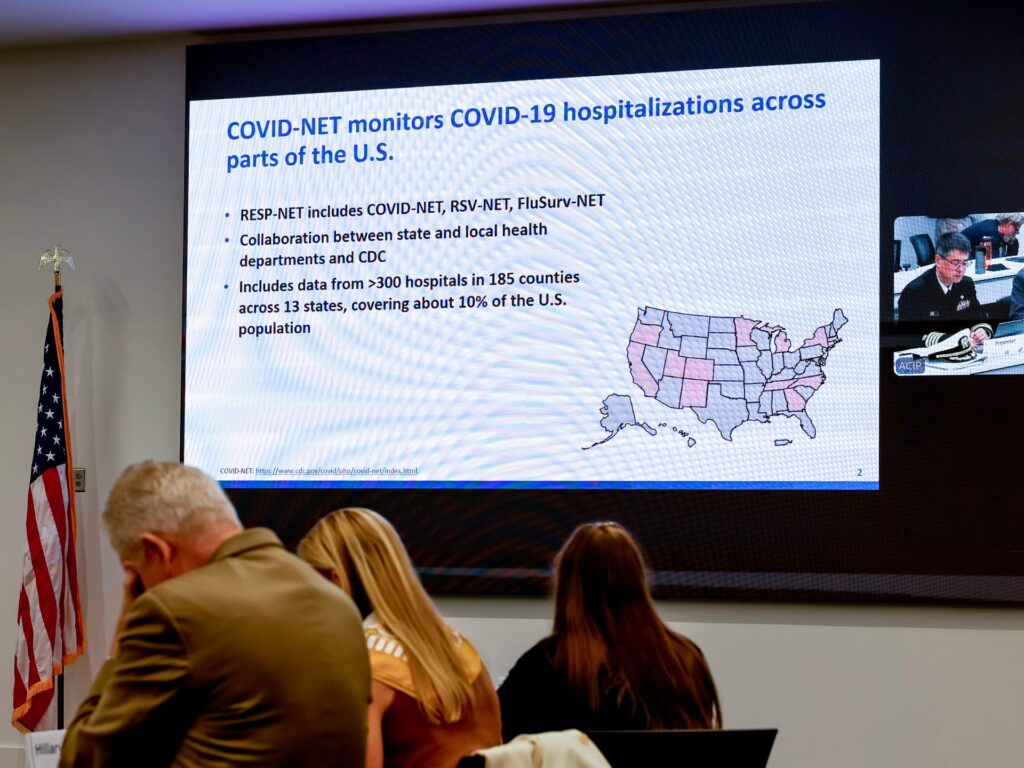Break from past recommendations comes amid warning of scientific backslide under leadership of HHS secretary RFK Jr.
A vaccine advisory panel picked by controversial Health and Human Services (HHS) Secretary Robert F Kennedy has not recommended that all US residents over six months old get a COVID vaccine.
The decision on Friday represented a break from previous recommendations from the panel since the COVID pandemic swept the world beginning in 2020.
Recommended Stories
list of 3 itemsend of list
Since the COVID vaccine became available in the US, the Advisory Committee on Immunization Practices (ACIP) had voted to recommend that all US residents over six months old get the updated vaccine every year.
The latest vote is only a recommendation, and must be approved by the Centers for Disease Control and Prevention. Still, it comes amid concerns the agency is moving away from scientifically supported vaccine policy under the leadership of Kennedy, who critics say has spread vaccine scepticism rooted in misinformation.
Speaking to a Senate Committee earlier this week, fired CDC Director Susan Monarez warned of increased politicalisation and a backslide in scientific rigour at the agency under Kennedy.
Monarez has alleged she was fired for failing to agree to greenlight any recommendations from ACIP, regardless of the scientific justification. Kennedy had gutted the advisory panel shortly after assuming his role, appointing some replacements who have been accused of spreading vaccine misinformation.
“Based on what I observed during my tenure, there is a real risk that recommendations could be made restricting access to vaccines for children and others in need, without rigorous scientific review,” Monarez said.
In the decision on Friday, instead of broadly recommending the COVID vaccine, the panel said the vaccine should be administered based on “shared clinical decision-making” with a doctor. The panel narrowly avoided recommending requiring a prescription for receiving the vaccine.
The panel also recommended the CDC adopt stronger language around what they characterised as the risks of vaccination.
Several medical groups have argued that adding extra barriers to receiving the vaccine could create confusion, leading to reduced inoculation rates that could in turn lead to the disease spreading.
Dr Sean O’Leary of the American Academy of Pediatrics called the decision not to recommend vaccination “extraordinarily vague” and said it would have “real-time impacts on American children”.
He told The Associated Press news agency that the discussion involved clear efforts to “sow distrust” about vaccines.
“It was a very, very strange meeting,” O’Leary said.
CDC data currently shows that COVID vaccines provide the strongest protection available against severe infection and death, even if people still become infected. People remain at risk of infection even after contracting the virus once, because it continues to evolve.
CDC data released in June shows the virus resulted in 32,000 to 51,000 US deaths and more than 250,000 hospitalisations last fall and winter. Most at risk for hospitalisation are unvaccinated seniors and young children.
During the meeting, ACIP focused on concerns over a rare side-effect of the vaccine, a heart inflammation known as myocarditis, that has occurred in mostly younger men.
A scientist studying whether people with certain genes are uniquely susceptible told the panel the Trump administration had cancelled his grant before the research could be finished.
Much of the panel’s scepticism has focused on mRNA vaccines, an emerging technology key to the fast rollout of COVID vaccines amid the pandemic.
Kennedy has repeatedly suggested such vaccines pose more threats than benefits, a position rejected by nearly all leading medical organisations.
He announced in August that he was moving to cancel $500m in mRNA vaccine research.

